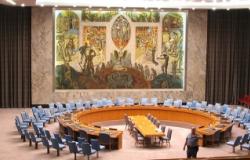
The changes observed in resourcing international organisations over the last decades may have dramatic consequences for their ability to fulfil their mandates. This paper investigates into how far reaching the expected changes really are, and whether the new types and sources of financial and human resources can really be considered as causal for these developments. It appears that resourcing may not be the initial cause, but contributes to the centrifugal dynamics currently observed in the multilateral system. Administrative cost related to the new and complex funding structures are considerable, and ensuring transparency over resource flows represents a major challenge. Official decision-making bodies lose power to sub-groups of members or external actors that fund parts of the organisations’ activities through separate channels. Given the large volume of non-core funding and the lack of transparency, they cannot easily adjust their own priorities. It can thus not be expected that the funding of certain activities through external channels will simply be compensated by a corresponding reduction of core funding in this area. Whether this negatively affects the ability of the organisations to fulfil their mandates – and hence, eventually their legitimacy – depends on the motivations of those actors empowered in this process.
Photo Credit: Falcon Photography (CC BY-SA 2.0)